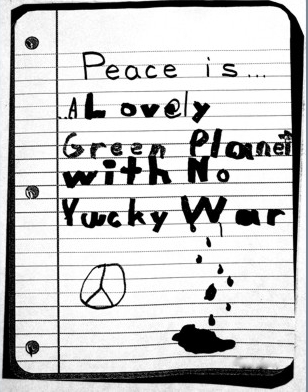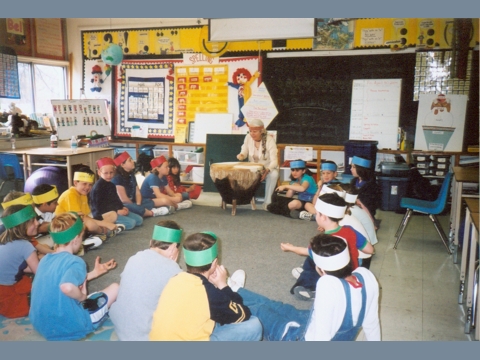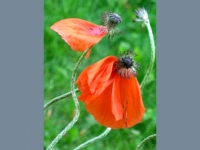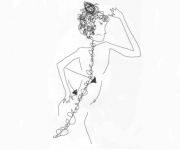- The Peace Workshop
 |
“I believe it is absolutely necessary for each human being to work toward the prevention of war and establishment of peace. The power of an individual is small, yet we believe in the strength of collective human energy, just as we know a drop of water is the source of a great river.” -Chiekio Akiyama – Radio and television commentator – Tokyo, 1988 My country is a country of teachers. It is therefore a country of peace. We discuss our successes and failures in complete freedom. Because our country is a country of teachers, we closed the army camps, and our children go about with books under their arms, not rifles on their shoulders. We believe in dialogue, in agreement, in reaching a consensus. |
This workshop is designed as a journey to awareness of the importance of peace and how each person can be a peacemaker.
 Part One: focuses on the feelings of each student, what they love, what they fear and connection to the earth.
Part One: focuses on the feelings of each student, what they love, what they fear and connection to the earth.
Part Two: introduces the concept of conflict as a normal part of life and ways of solving conflicts creatively. Students provide examples of conflict in their daily lives and begin to see themselves as peacemakers.
Part Three: is a student participatory roleplay of the Great Haudenoshonee Peace Council in a time of warfare amongst the tribes when The Peacemaker came to the people and planted the Tree of Peace. Each student can beat on the peace drum and say why peace is important.
 Part Four: continues the journey to the United Nations Peace Keeping Forces and a re-definition of what makes a hero. Students again come to the drum to talk about their heroes.
Part Four: continues the journey to the United Nations Peace Keeping Forces and a re-definition of what makes a hero. Students again come to the drum to talk about their heroes.
Part Five: is a role-play exercise that demonstrates the deadly development of weapons and culminates in the awareness of atom bombs.
Part Six: involves the students taking the point of view of the trees and animals.
Part Seven: recognizes that many people are sad about the weapons and words of war.
Part Eight: replaces words of war with words of peace as the students walk the path to peace and together solve the puzzle of peace as each student has a ‘piece of peace’.
The students respond very positively to the workshop in spite of the difficult subject matter. One young girl at the Haudenoshonee Peace Council drum summed up the teaching beautifully when she said “peace is healing the wounds of the world.” Another child said “peace is important so we can find forgiveness.”
Student Responses:
 This is what I learned:
This is what I learned:
to be kind and
be nice to the
world
___________________________________________________________
Peace is something that everyone holds
something as precious as silver and gold
___________________________________________________________
Peace is good but war is
bad War is dying war is
crying, But…peace is good
peace is laughter. So be
a…
Peace Macker!
___________________________________________________________
Sometimes you have so much fun you forget that your
learning. the peacemaker, Sam
___________________________________________________________
I learned not to fight or hurt.
___________________________________________________________
We learned that you can solve problems. Now our class knows a lot of peace
things and to solve fights.
___________________________________________________________
We even talked about peace, joy, love, friends, justice, laughter, learn,
understanding, freedom, share, harmony, healthy, confidence.
___________________________________________________________
It’s a word of happiness, joy and
beauty, not to fight, and scold, but do your duty. Peace means everything you
love, not war, and bomes and bad things to think of. So be a peace maker by
helping others, treat them like your sisters and brothers.
___________________________________________________________
Voices are ringing. Peace peace no killing!
So take up the torch hold it high!
Do not forget the people that die!
___________________________________________________________
A Song For Peace
If all the people everywhere
were kind to all the others
A happy home this world would seem
for all be like brothers.
___________________________________________________________
The Golden Rule
Baha’I Faith
“He should not wish for others that which he doth not wish for himself, nor promise that which he doth not fulfill.”
Gleanings
Buddhism
“Hurt not others with that which pains yourself.”
Udana-Varqa
Christianity
“All things whatsoever ye would that men should do to you, do ye even so to them:
for this is the law and the prophets.”
The Gospel of Matthew
Hinduism
“This is the sum of duty: do naught to others which if done to thee would cause the pain.”
The Mahabharata
Islam
“No one of you is a believer until he desires for his brother
that which he desires for himself”.
Hadith
Judaism
“What is hateful to you, do not to your fellow men.
That is the entire Law, all the rest is commentary.”
The Talmud
Zoroastrianism
“That nature only is good when it shall not do unto another
whatever is not good for its own self.”
Dadistan-i-Dinik
 Made possible through the Foundation for Enriching Education Perth-Huron.
Made possible through the Foundation for Enriching Education Perth-Huron.



